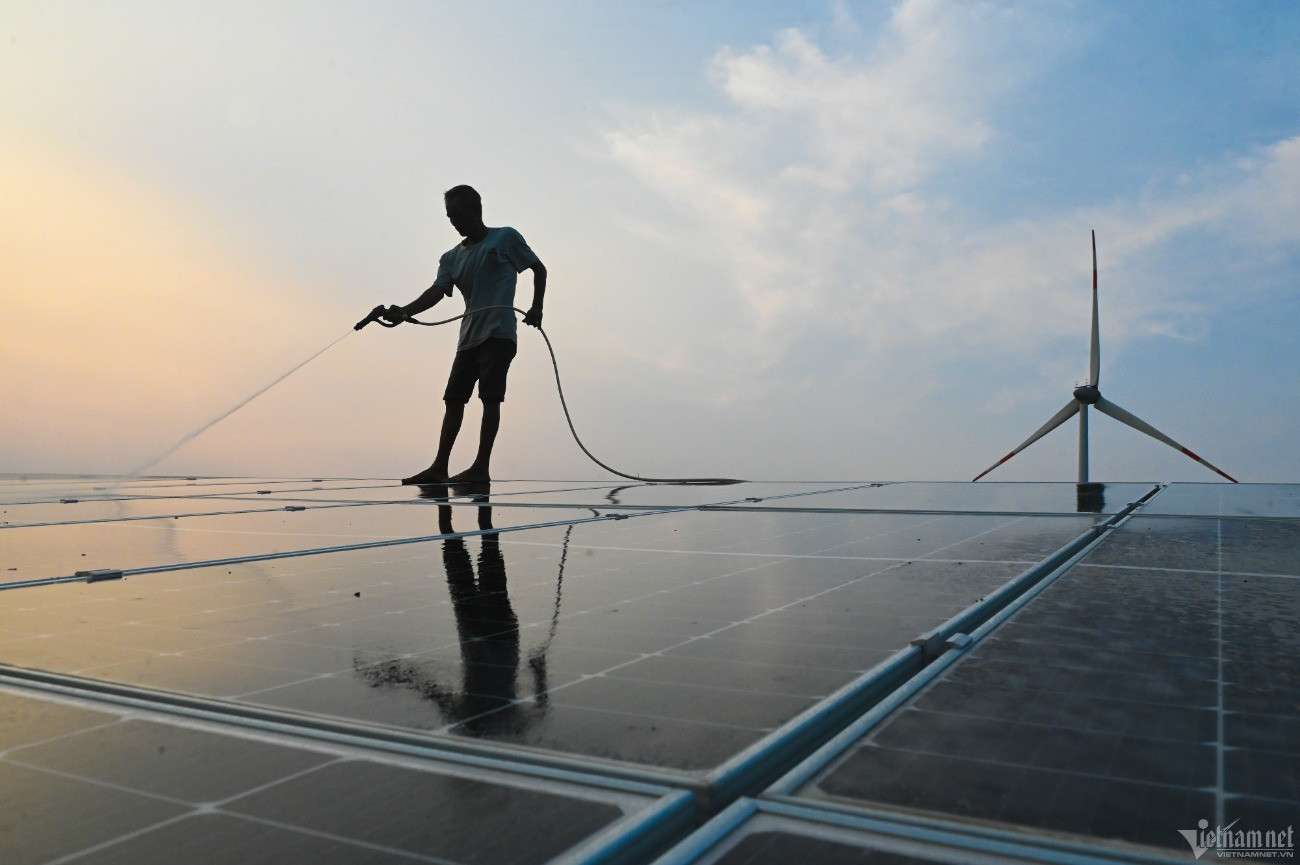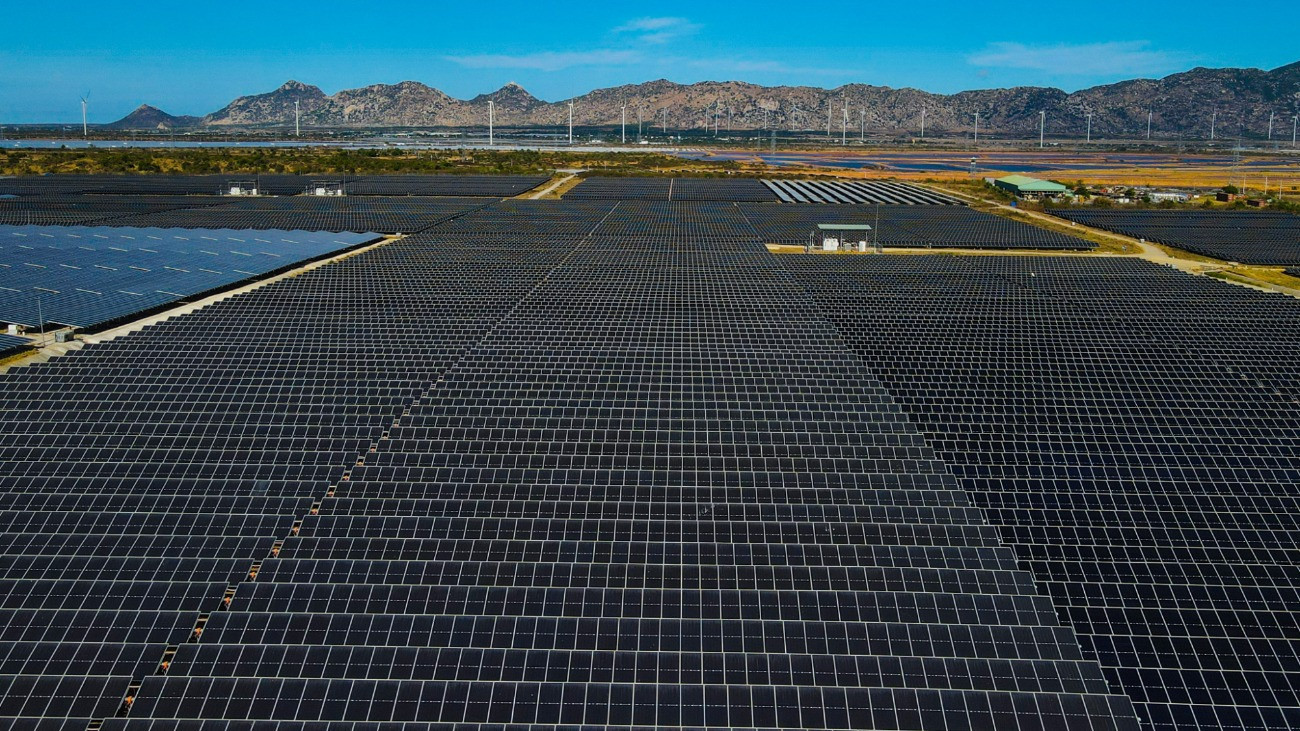No developed country considers solar panels as hazardous waste.
The government believes that no developed country considers solar panels as hazardous waste and proposes to collect and treat waste and expired solar panels.
The number is not much but worth noting
In the report on the implementation of policies and laws on energy development in the 2016-2021 period, the Government updated new information related to the treatment of waste from solar panels.
Although the amount is not large, the Government considers the waste from solar panels "worth noting". Vietnam is new to the renewable energy market, so there are no solar or wind power projects in the dismantling stage.
 |
Currently, the amount of solar panel waste is not much because the solar power projects are all newly installed and operated. |
The report states that: Due to Vietnam's harsh weather conditions, high temperatures, in many places the outdoor temperature during peak sunshine can reach >40-50oC, at which time the solar panel glass panels can absorb heat up to >60oC, which can affect the inner plastic layer of the panels or cause the glass and frame of the panel to warp, reducing the lifespan and efficiency of the panel. In particular, when the air temperature is high and suddenly it rains, the risk of warping and deformation of the panel will increase.
Furthermore, Vietnam's air quality is poor, the air contains many types of pollutants (e.g. soot) that are difficult to clean when stuck on the glass surface of the solar panel, thus affecting the performance of the solar panel. Tornadoes, storms, floods and landslides are the causes of damage to the solar panels.
Therefore, the Draft National Energy Plan and the Draft Environmental Impact Assessment Report of the National Energy Plan have identified the need to develop and promulgate solar panel quality standards.
This is to ensure the quality and lifespan of the battery as committed by the supplier, while reducing the amount of solid waste from damaged solar panels; promulgating regulations on the collection and management of discarded solar panels, the responsibility of investors in managing and handling these discarded solar panels...
Research on technologies and solutions for collecting, processing and recycling of damaged solar panels in the future is also taken into account. This is to proactively respond at the end of the planning period when the amount of waste from solar panels increases in large quantities.
"In the future, at the end of the planning period, when the amount of this type of waste increases, a pilot treatment can be carried out," the Government stated the treatment direction.
Pursuant to Clause 3, Article 56 of Decree No. 08/2022/ND-CP, the Government affirms: The management and handling of discarded and damaged solar panels will be in order of priority from reuse, maintenance to component utilization, recycling, and finally landfill according to the provisions of law.
 |
The amount of solar panels discarded in the next 20 years will be huge. Photo: Thach Thao |
How do countries handle discarded solar panels?
Citing information from SolarTech (USA), the report stated: The lifespan of solar panels is 20-30 years, there are solar panels from the 1970s and 1980s that are still in use.
Many US state and federal regulatory agencies have conducted tests to check for environmental hazards, but most products pass these tests and these agencies do not list PV solar panels as hazardous waste.
There are many different measures for expired panels, but mainly the separation of the material components that make up the panel (glass, cells, metal, plastic/polymer) for reuse, such as glass panels are used to make bottles, cells are chemically treated so that factories can reuse them to produce cells for new panels with higher performance/efficiency...
According to the IEA Photovoltaic Power Systems Programme - IEA PVPS (Switzerland), this organization has surveyed and researched the treatment of solar panels that have expired for a long time and in many countries. According to the published documents of IEA PVPS, the reactions and assessments in the countries are as follows:
EU:There is a regulation on the recycling/reuse rate of solar panels in the EU of 85%/80%.
America:There are currently no regulations governing the management of expired PV panels.
Japan:There are no specific regulations on the disposal of expired solar panels, panels that must be disposed of (if no longer usable) are treated as ordinary solid waste (non-hazardous). In Japan, these panels are also recycled for use.
China, South Korea:There are similar reviews as above.
"Thus, no developed country considers PV solar cells as hazardous waste, but most consider them as resources as input materials to produce new solar cells or for other purposes," the Government report affirmed.

